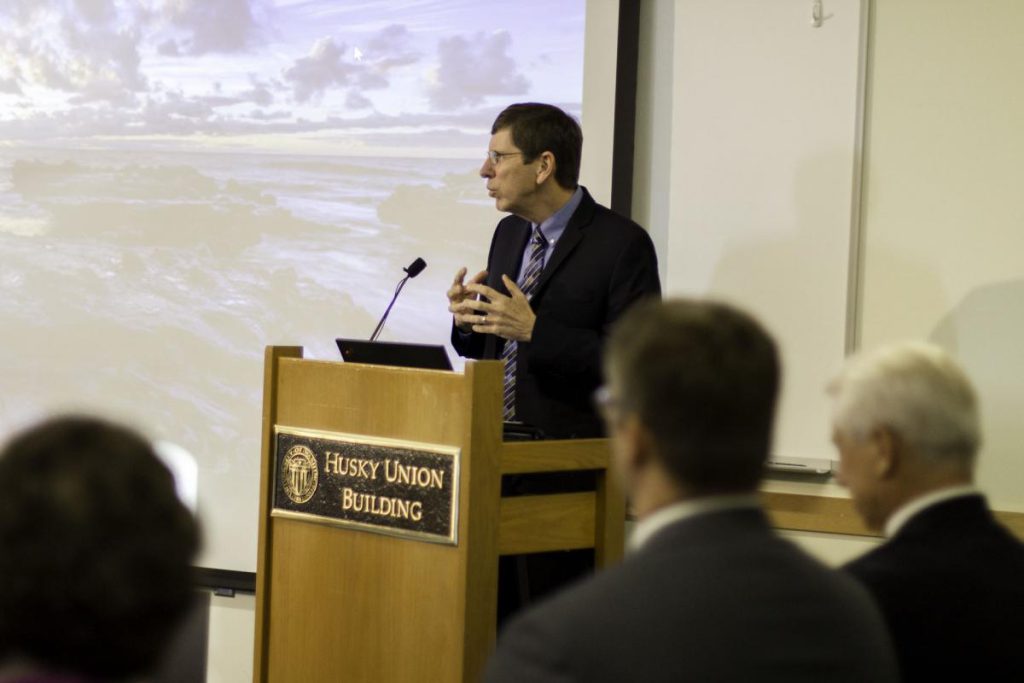
By Gabe Cohen
SEATTLE — A new research team at the University of Washington aims to improve urban spaces for deliveries. The effort comes at a time when trucks and traffic congestion often clog city centers and make speedy delivery a difficult or dangerous task, the group says.
The new Urban Freight Lab will use the area in and around downtown Seattle as a “living lab” where researchers will gather data on the “final 50 feet” of deliveries, referring specifically to tricky curbside parking that’s created problems in urban centers across the country.
“We’re going to explore solutions,” said UW’s Barbara Ivanov. Ivanov is the Chief Operating Officer of the Supply Chain Transportation & Logistics Center.
Ivanov says cities like Seattle have reached a precarious point where new residents are flooding urban centers, increasing demand for speedy deliveries, even though curbside space is limited to deliver those products so rapidly.
“Where’s the truck going to stop?” said Ivanov.
Right now she says delivery trucks in Seattle often park illegally, or at the very least, dangerously. Meanwhile, some restricted loading spots are usually vacant.
Ivanov hopes the data they analyze will reveal potential solutions that they can then test on the street. Those may include using technology to create a more interactive, up-to-the-minute system where delivery drivers can use smart phones to find vacant spots, she says.
The Urban Freight Lab has teamed with Costco, Nordstrom and UPS, and plans to hear from officials and other delivery and technology companies working on solutions. Their researchers will map freight infrastructure around the city and document how deliveries are being managed.
“I think that it’s the only way that the final 50 feet of the delivery system is going to be able to function. It’s going to collapse,” said Ivanov. She thinks that delivery prices will skyrocket with demand if there’s no solution for simpler deliveries.
SDOT is investing in the research, announcing a $285,000 collaboration with UW’s Urban Freight Lab over the next three years. That could be extended later. The solutions the team comes up with could be used in cities across the country. Ivanov says her team has already been in touch with officials as far away as New York City.
Their first full meeting should happen around late November.